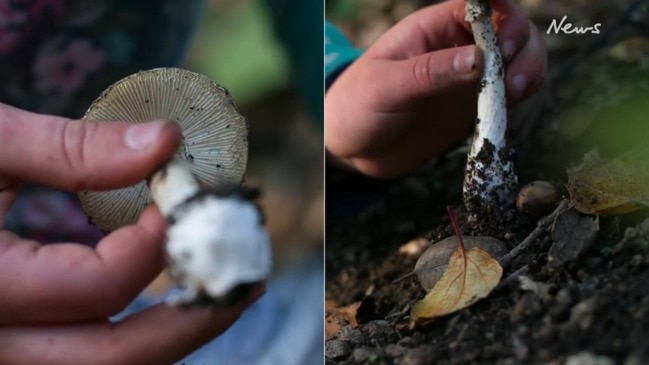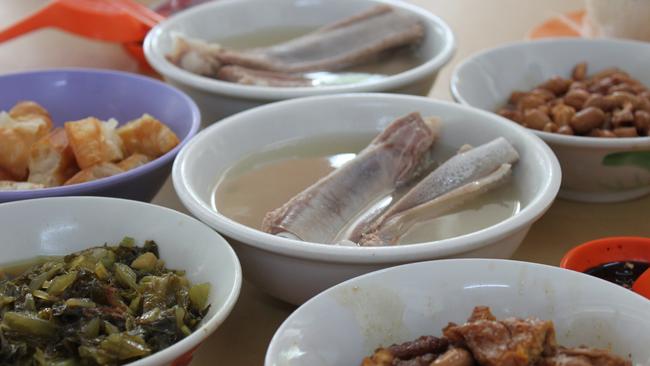Adelaide University study shows popular Chinese packet soup bak kut teh could cause liver damage
A popular Chinese soup, sold locally in packets, could lead to liver damage or even failure if mixed with prescription medicine, an Adelaide University professor has warned.

SA News
Don't miss out on the headlines from SA News. Followed categories will be added to My News.
Adelaide’s most prominent forensic expert has issued a public safety warning after tests showed a popular Chinese soup causes liver failure by clashing with prescription medication.
Adelaide University Professor Roger Byard studied the recipes of four locally purchased packet mixes of the popular soup bak kut teh (“meat bone tea”), which is also served at Adelaide restaurants.
When mixed with liver cells the ingredients killed many – up to 83 per cent in one concentrated soup formula.
Professor Byard said the work on food ingredients added to previous studies that showed ingredients used in traditional Chinese medicine could clash with prescriptions.
“People have been warned for some time that herbal medicines and therapies may have harmful side effects that can include significant liver damage,’’ he said.
“In rare cases this has required transplantation and even led to death.
“For the first time a laboratory study by the University of Adelaide has shown that foods containing herbs such as the Chinese soup bak kut may also be toxic to liver cells.”
The results of the tests, carried out when a patient who had eaten the soup two days prior, have been published in the journal Forensic Science, Medicine and Pathology.
Professor Byard said: “People with underlying liver disease or who are taking prescription medications should be warned of this potential side effect.
“All such preparations should include accurate labelling of the ingredients until further studies can be undertaken to identify the specific herbal substances that are toxic.”

Prof Byard said whether having the soup at home or in a restaurant, people should be aware that it may be damaging to the liver.
The findings will also change the way autopsies are carried out, with doctors now alive to the possibility of poisoning.
“If unexpected liver damage is encountered at autopsy, information on possible recent ingestion of herbal food preparations should be sought, as routine toxicology screening will not identify the active components,” Professor Byard said.
“Liver damage may therefore be caused not only by herbal medicines but possibly by herbal products contained in food.”
Traditional Chinese medicines and food formulas are a boom industry, with the country exporting $500m each year to the US.
But Professor Byard said while these preparations had been used for thousands of years, there were recent clashes with Western medications.
“The reasons for this (growing popularity) are complex; however, an underlying belief is that as herbal products are ‘natural’, they must therefore be much safer to use than manufactured pharmaceutical agents,’’ he said.
“This position fails to acknowledge that any agent that has therapeutic effects must also have the potential for therapeutic side effects.”




